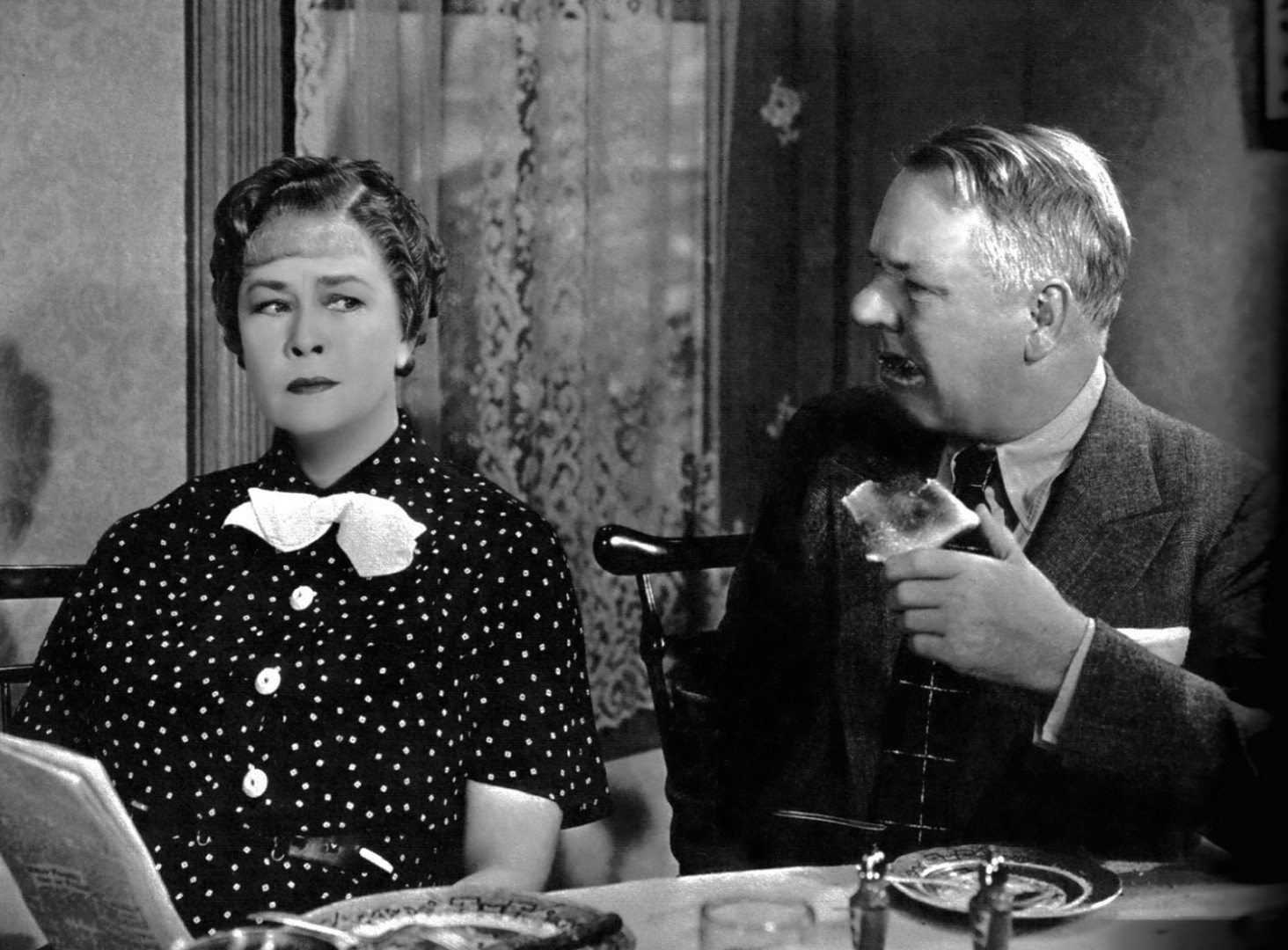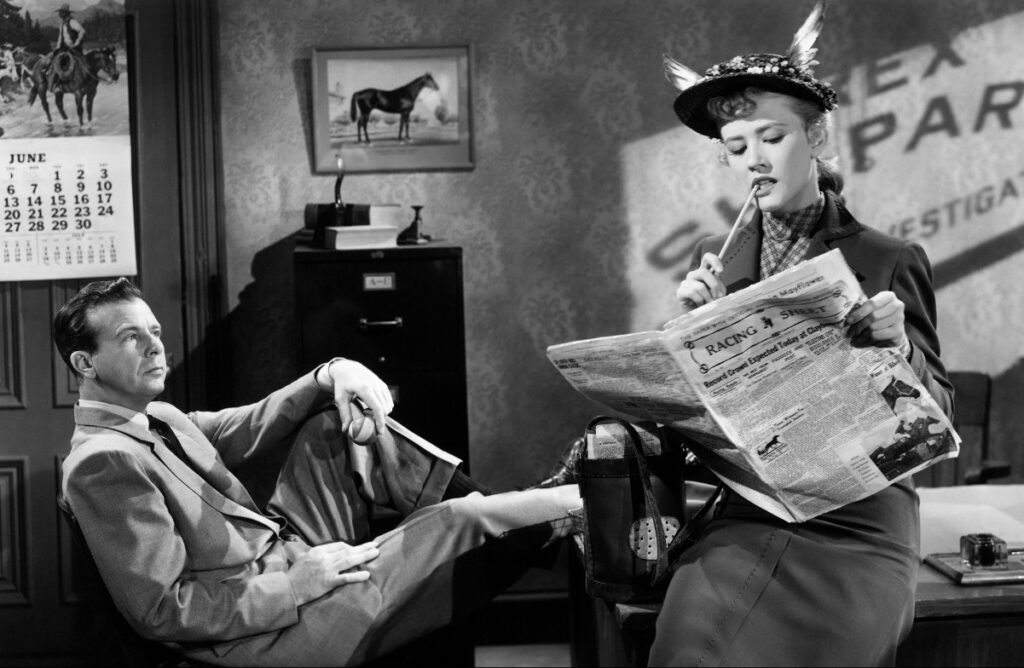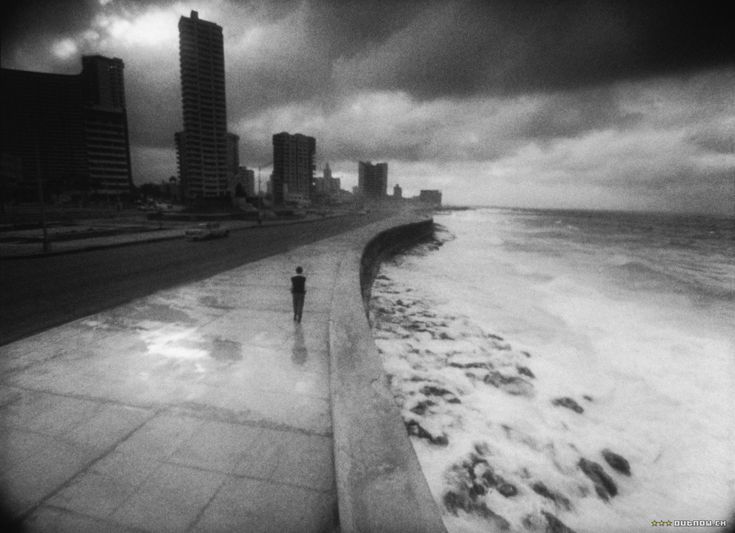Norman Z. McLeod’s It’s a Gift is one of the must-see classic screen comedies of Hollywood’s Golden Age with W.C. Fields at the apex of his career and a stalwart cast of characters to abuse and torment him.
The Production: 5/5
Norman Z. McLeod’s It’s a Gift is one of the greatest comedies ever made. For its star-writer W. C. Fields, it offers just about every opportunity imaginable to present to the public the long list of foibles, irritations, and frustrations which victimized him through decades in vaudeville, legitimate theater, radio, and films. It is Fields at his zenith, and one can’t imagine a frame of it any different.
Grocer Harold Bissonette (W.C. Fields) has long dreamed of getting out of retail business having to deal every day with the demanding, impossible-to-please public and spending his remaining days tending lush orange groves in California. Despite the objections of his nagging wife (Kathleen Howard), love-struck oldest daughter (Jean Rouverol), and bratty youngest son (Tom Bupp), Harold’s mind is set on moving west, aided immeasurably when his uncle dies and leaves him enough money to buy a piece of property in California. So the family packs their ramshackle roadster and heads to the West Coast unaware of what they’re going to find when they get there.
Jack Cunningham’s screenplay (penned from a story by Fields himself under the pseudonym Charles Bogle) offers a series of comic set pieces, all of which find W.C. Fields under attack at home from the non-stop complaints of his wife, his thoughtless daughter, his mischievous son, and the ornery family dog; a group of grocery store customers who taunt and torment him (Morgan Wallace eternally demanding cumquats, blind Mr. Muckle played by Charles Sellon who manages to break as much glass as possible, the smarmy Josephine Whittell insulting the Bissonettes at every opportunity, Baby Le Roy’s Baby Dunk whose every motion finds Fields in his crosshairs), and in the neighborhood a noisy milkman, an insurance salesman looking for Carl La Fong, and assorted objects like a porch swing, a cocoanut, and a squeaky clothesline, all prime assaulters on Fields’ quiet domain. The film’s five acts are very straightforwardly presented by director McLeod who has set the camera expertly to catch all of the slapstick (Mr. Muckle’s hazardous attempt to navigate a busy city street is wonderfully staged and shot) and also gives us the impressive three-level apartment house back porch where act three unfolds in all its hilarity before taking us cross country (a public picnic on private property is the highlight of act four as the Bissonettes make a colossal trash-filled mess of someone’s lush grounds) and eventually to California where our hearts sink until we get a surprise twist at the end. Fields may have expressed late in life a preference for The Bank Dick (he’s more forceful and less a milquetoast and victim in it), but he never made a finer film than It’s a Gift.
Aside from W.C. Fields’ inspired human target of everyone else’s brickbats, the film offers perhaps the cinema’s most shrewish wife in Kathleen Howard. Her operatic background gives her the powerful, haranguing voice that never stops browbeating her put-upon husband, and if the film had a weakness, it might be that she never gets a full comeuppance for making her husband’s life so miserable. Tom Bupp’s loud shouts are perfect foghorns for constant irritation while Jean Rouverol’s lovesick infatuation with Julian Madison’s John Durston occupies her every waking moment. All of the other irritations to Fields mentioned earlier pull off their shenanigans with expert timing (Baby Le Roy goes from pelting Fields with grapes to dropping a deadly icepick at him that’s as scary as it is hilarious). Del Henderson makes a most welcome appearance late in the movie as the Bissonette family’s savior. Look quickly as Fields opens his grocery store and you’ll spy Jane Withers in an early cameo. The audio commentary gives more information about her abbreviated appearance in the film.
Video: 4/5
3D Rating: NA
The film’s 1.37:1 theatrical aspect ratio is faithfully delivered in this 1080p transfer using the AVC codec. Though some of the film has a dated appearance, the grain structure is consistent throughout, and the image is usually sharp. Grayscale is nicely presented with blacks that are well above average and white levels clean and crisp. There are occasional slight scratches but nothing especially glaring to interrupt one’s high spirits watching the film. The movie has been divided into 8 chapters.
Audio: 5/5
The DTS-HD Master Audio 2.0 mono sound mix is very typical of its era. There isn’t a lot of bass in the presentation, but engineers have done an expert job in ridding the soundtrack of hiss, crackle, pops, or flutter. The dialogue has been well-recorded and has been mixed strongly with the bits of music on the track and the sound effects which go a long way in increasing the film’s comic credentials.
Special Features: 1.5/5
Audio Commentary: W. C. Fields expert James L. Neibaur gives us a thorough dissection of the movie offering astute film analysis and presenting valuable background information on all of the notable players.
Kino Trailers: The Old-Fashioned Way, You Can’t Cheat an Honest Man, My Little Chickadee, The Bank Dick.
Overall: 4.5/5
Norman Z. McLeod’s It’s a Gift is one of the must-see classic screen comedies of Hollywood’s Golden Age. With W.C. Fields at the apex of his career and a stalwart cast of characters to abuse and torment him, It’s a Gift is a Blu-ray release with the heartiest of recommendations.
Matt has been reviewing films and television professionally since 1974 and has been a member of Home Theater Forum’s reviewing staff since 2007, his reviews now numbering close to three thousand. During those years, he has also been a junior and senior high school English teacher earning numerous entries into Who’s Who Among America’s Educators and spent many years treading the community theater boards as an actor in everything from Agatha Christie mysteries to Stephen Sondheim musicals.
Post Disclaimer
Some of our content may contain marketing links, which means we will receive a commission for purchases made via those links. In our editorial content, these affiliate links appear automatically, and our editorial teams are not influenced by our affiliate partnerships. We work with several providers (currently Skimlinks and Amazon) to manage our affiliate relationships. You can find out more about their services by visiting their sites.







Similar threads